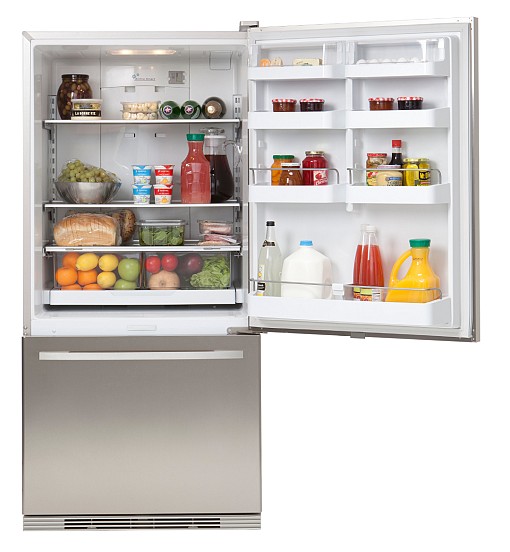Getting the Most from Your ENERGY STAR Appliances
 ENERGY STAR appliances bear one of the most recognized certifications in America. but you may be wondering what exactly is it and how can it help you. ENERGY STAR was developed in 1992 by the US Environmental Protection Agency, to promote production of energy saving home appliances for the home.
ENERGY STAR appliances bear one of the most recognized certifications in America. but you may be wondering what exactly is it and how can it help you. ENERGY STAR was developed in 1992 by the US Environmental Protection Agency, to promote production of energy saving home appliances for the home.
What the ENERGY STAR label means
To receive the ENERGY STAR label, appliances and other electronic equipment must be energy efficient – the increase in efficiency varies depending on the type and size of the item. Most refrigerators must be 20% more efficient than the federal minimum standard to get the label. Televisions need to save at least 40% on energy, and bigger ones need to be even more efficient. Other products available with ENERGY STAR labels include dehumidifiers, room air conditioners, computers, monitors, printers, cable boxes, and DVRs. Dryers, stoves, and microwaves can’t get labeled because there’s not much difference in efficiency between models.
The Energy Guide label
When buying ENERGY STAR appliances, look for the label on the box — your first level of assurance that they are efficient. Some products like refrigerators, washing machines, and dishwashers also come with an Energy Guide Label, a big yellow card that shows how much energy that model uses compared to other similar products. Most appliances on display in a showroom will display the labels, so it’s easy to compare efficiencies of different models. The important thing to look at is the total annual energy use and the size of the appliance to pick the most efficient model. Most ENERGY STAR appliances aren’t much more expensive than non-labeled ones (if at all), and will save energy and money for as long as you own them.
Get rid of that old fridge
Just because you bought an ENERGY STAR appliance, TV, or computer doesn’t mean that you will automatically start saving tons of money and electricity, though. A big problem is that when someone replaces their old, inefficient fridge they usually stick the old one in the garage to keep their beer cold. So instead of replacing the inefficient unit, he is using more energy than before. The solution? Hire a handyman to haul away that old fridge for recycling. If you absolutely can’t part with it, only turn it on for those few parties you have every year, leaving it unplugged the rest of the time.
Turn off the TV when you're not watching
That brings up the biggest problem with electrical equipment — most of it is always on standby, even when we aren’t using it, just so we can switch it on with the remote and don’t have to get off our butts and walk across the room. Of course, we can’t turn off everything: refrigerators, cable TV and DVR boxes, and clock radios need to stay on all the time. But you can put your TV on a switched power strip that you turn off when you’re not watching. Trust me, it’s not that challenging. The EPA estimates that the average TV uses about half of its lifetime energy when it’s not on, just so the remote works. Come on, people, we can’t be that lazy!
Save even more energy
We should also do a better job of turning off computers, stereos, wireless routers, and other electronics when we’re not using them. Set your computer, monitor, and printer to their energy saver settings so they power down when idle and turn them off when you're finished working. Put your wireless router and modem on a timer that turns them off at the end of the day. And when you go on vacation, unplug everything you can (except the fridge), to save even more energy.
Buying ENERGY STAR appliances and electronics is a good start to saving energy, but you need to get rid of the old, inefficient ones and cut the power to even the efficient ones when you’re not using them to really make a difference.
Carl Seville is a green building consultant who writes for Networx.
Updated October 23, 2018.
Looking for a Pro? Call us (866) 441-6648

Plumbing Average Costs
Plumbers Experiences

Electrical Upgrade Including New Breakers And Replacement Wiring

Hiring A Great Landscaper Was Almost Too Easy, Even Long Distance



